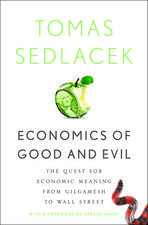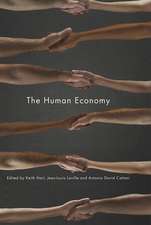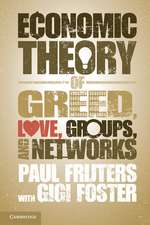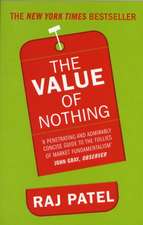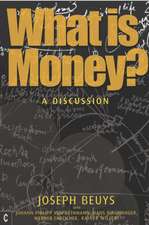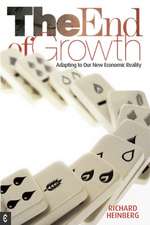Economics, Values, and Organization
Editat de Avner Ben-Ner, Louis Puttermanen Limba Engleză Paperback – 12 apr 2000
Preț: 435.49 lei
Preț vechi: 489.31 lei
-11% Nou
Puncte Express: 653
Preț estimativ în valută:
83.33€ • 87.30$ • 69.06£
83.33€ • 87.30$ • 69.06£
Carte tipărită la comandă
Livrare economică 08-22 aprilie
Preluare comenzi: 021 569.72.76
Specificații
ISBN-13: 9780521774116
ISBN-10: 052177411X
Pagini: 558
Ilustrații: 6 b/w illus. 38 tables
Dimensiuni: 153 x 229 x 32 mm
Greutate: 0.77 kg
Editura: Cambridge University Press
Colecția Cambridge University Press
Locul publicării:New York, United States
ISBN-10: 052177411X
Pagini: 558
Ilustrații: 6 b/w illus. 38 tables
Dimensiuni: 153 x 229 x 32 mm
Greutate: 0.77 kg
Editura: Cambridge University Press
Colecția Cambridge University Press
Locul publicării:New York, United States
Cuprins
Foreword Amartya Sen; Preface Avner Ben-Ner and Louis Putterman; 1. Introduction: values and institutions in economic analysis Avner Ben-Ner and Louis Putterman; Part I. The Formation and Evolution of Social Norms and Values: 2. The simultaneous evolution of institutions and norms Robert Sugden; 3. A utilitarian theory of political legitimacy Ken Binmore; 4. Why do we care what others think of us? Chaim Fershtman and Yoram Weiss; 5. Starting with nothing: on the impossibility of grounding: norms solely in self-interest Jane Mansbridge; Part II. The Generation and Transmission of Values in Families and Communities: 6. Did father know best? Families, markets, and the supply of caring labor Nancy Folbre and Tom Weisskopf; 7. How communities govern: the structural basis of pro-social norms Samuel Bowles and Herbert Gintis; 8. The limits or moral diversity Timur Kuran; 9. Moral diversity and specialized values: some observations John Michael Montias; Part III. Social Norms and Culture: 10. Social norms as positional arms control agreements Robert Frank; 11. Gifts and bribes Susan Rose-Ackerman; 12. How do we know whether a monetary transaction is a gift, an entitlement, or a payment? Viviana Zelizer; Part IV. The Organization of Work, Trust, and Incentives: 13. How effective are trust- and reciprocity-based incentives? Ernst Fehr and Simon Gächter; 14. Worker trust, system vulnerability, and the performance of work groups Andrew Schotter; 15. Trust: beliefs and morality Jonathan Baron; 16. Who is the custodian of the custodians? Russell Hardin; Part V. Markets, Values, and Welfare: 17. Institutions and morale: the crowding-out effect Bruno S. Frey; 18. The joyless market economy Robert Lane; Epilogue: historical evolution of values and institutions Douglass North.
Recenzii
'This book has a good introduction by the editors and a conclusion by Douglass North, who says we must understand the interaction of institutions and behaviour to understand social change and development. The interesting essays demonstrate the amount of work needed to comprehend the development of morality.' The Times Higher Education Supplement
' … this is an excellent volume …'. Journal for Legal and Social Theory
' … this is an excellent volume …'. Journal for Legal and Social Theory
Descriere
A path-breaking analysis of the relationship between economic institutions and values.

